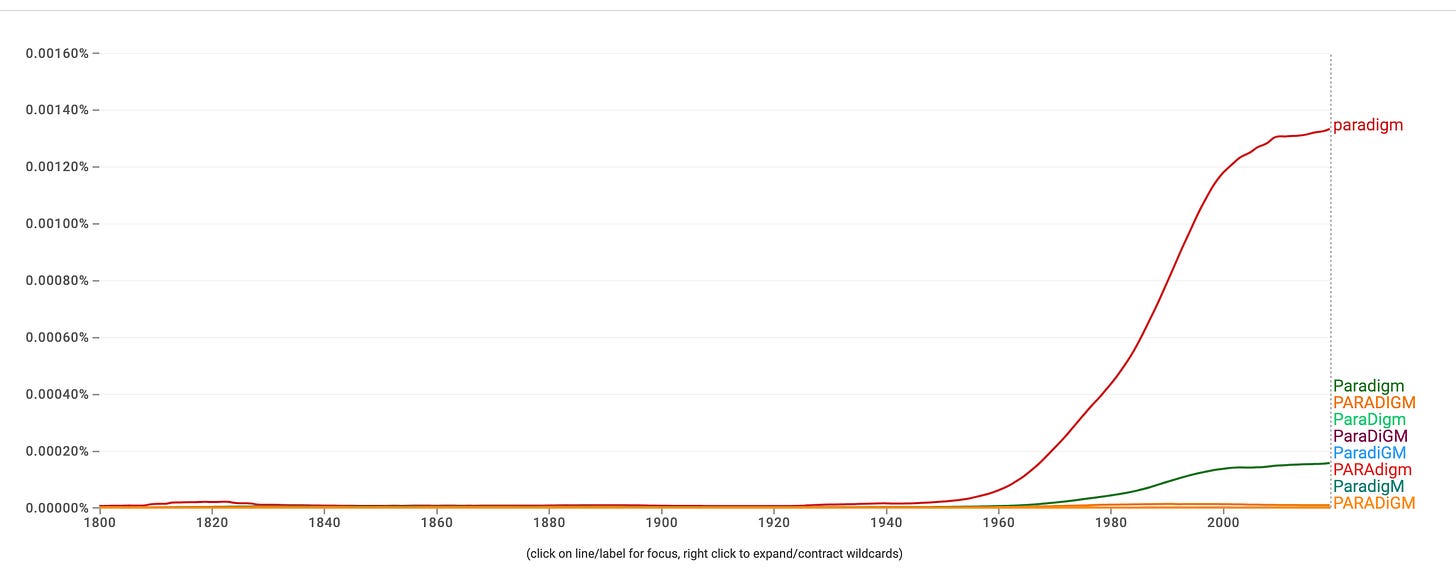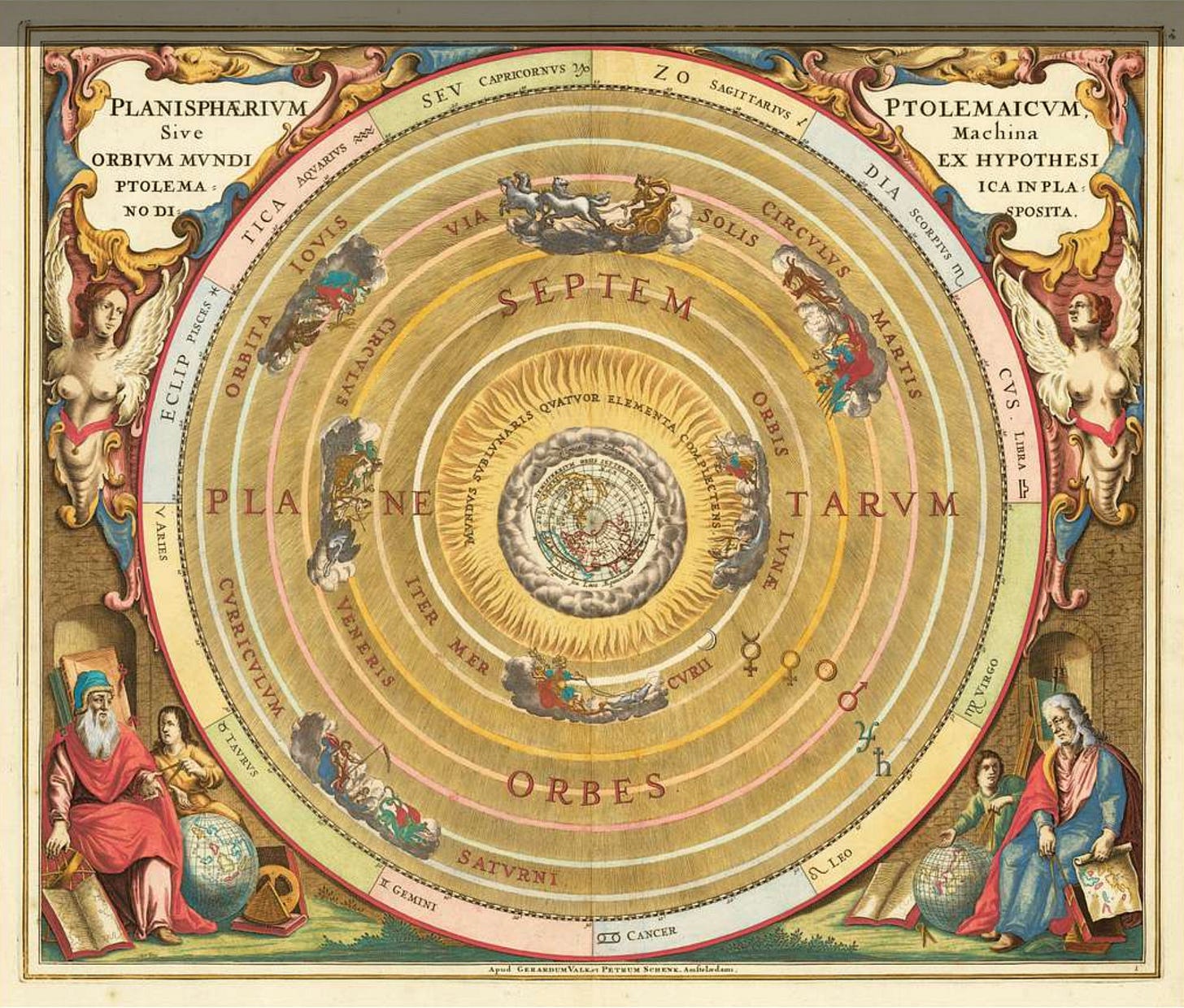How's Your World?
Looking at the World Through Clouds of Ideas
Circa 1991/92: I’m 21 and studying at Melbourne’s Victorian College of the Arts in the Bachelor of Music (Improvisation) degree which includes electric bass guitar lessons with Jeremy Alsop. Jeremy has just returned from living in New York, playing with The Cats, and has adopted a “New York state of mind”. In a moment that has stayed with me ever since, he enters the room and opens with “How’s your world?”. “Wait a minute!” I thought, “I have a world?!”.
Hello, I’m Dr Brad Fuller and this is the Gig Based Learning podcast.
Fast forward about 25 years and I’m “sliding into philosophy”, reading Ian Hacking’s introduction in the 50th anniversary edition of Thomas Kuhn’s seminal work “The Structure of Scientific Revolutions” when he casually drops:
And of course there are many worlds: I live in a world different from that of opera divas or the great rappers. Clearly there is a lot of room for confusion if one starts talking about different worlds. All sorts of things may be meant. (p 21)
Holy Smokes, Jeremy has a world, I have a world, Ian Hacking has a world, opera divas have a world, and great rappers have a world. That does seem to leave a lot of room for confusion. All of these worlds and confusion seem to stem from those stealthy assumptions, beliefs, and ideas we’ve been talking about. Fortunately, Canadian academic Brent Davis and his various co-authors have been working away for most of the century trying to clear up this confusion about worlds in education. Phew.
Clouds of Ideas
Davis uses Kelly (2010) as a launchpad for his inquiries. Kelly maintains that:
Ideas never stand alone. They come woven in a web of auxiliary ideas, consequential notions, supporting concepts, foundational assumptions, side effects, and logical consequences and a cascade of subsequent possibilities. Ideas fly in flocks. To hold one idea in mind means to hold a cloud of them. (Kelly, 2010, pp. 44-45 in Davis, 2018)
These clouds of ideas and assumptions come together to form an “invisible backdrop” for how an individual “sees” the world or their “worldview” (Davis & Francis, 2022, p. 9).
Worldviews, Paradigms, and Frames
Methodologist John W. Creswell “favours” the term “worldview” but says it’s often used “synonymously” with “paradigm”, a term Kuhn resurrected from, you guessed it, the Greeks, when he reintroduced it to the world in the aforementioned “The Structure of Scientific Revolutions”. Aristotle used paradigm like we use “exemplar, i.e., a very best and most instructive example” (Kuhn, 2012, p. 15). Unfortunately, the use of “paradigm” is a bit like “pedagogy” and by 1970 Kuhn wrote that he’d “lost control of it” (See Figure 1).
I’ve developed a definition that combines versions from research gurus Guba and Creswell to get:
A paradigm is a basic set of generalizations, beliefs, and values that guide the action of a community of specialists. (Adapted from Creswell, 2018, p. 88; Guba, 1990, p. 17)
But I think Davis and Francis’ version might be the most useful for us. They say that:
Paradigm refers to both a system of thinking and an image [or metaphor] that can serve as a symbol for that system.
They say that a “worldview is a frame”, an “extensive and complex web of meaning” which we “look through’ to see the world (p. 4). They use “frame” to “refer to coherent and resilient systems of thinking” (p. 9).
Kuhn believed that paradigm changes in science, like the Copernican Turn in astronomy that swapped the sun for the earth at the centre, “tend to operate sequentially as more powerful images and their associated sensibilities displace entrenched ones” causing scientists to “see the world of their research-engagement differently”. He says:
In so far as their only recourse to that world is through what they see and do, we may want to say that after a revolution scientists are responding to a different world.
Kuhn called this movement from one frame to another a Paradigm Shift but Davis observes that “within education, it appears that multiple paradigms can exist simultaneously, all operating in tension with one another” (2018, p. 185).
Framing the Education Multiworld™
Whereas scientists seem to eventually move to a new world - OK maybe the sun really is at the centre of the universe - paradigm change in education seems to result in a tension soaked Marvel-like Education Multiworld™. As new clouds of ideas and assumptions emerge and begin to guide the action of a community of specialists, the old world carries on. In the recently released 4th edition of Engaging Minds, Davis and co-author Krista Francis identify five worlds -
Early Formal Education - 3000 BCE
Standardised Education - 1600s
Authentic Education - early 1900s
Democratic Citizenship Education - 1960s
Systemic Sustainability Education - 1990s (p. i)
How’s Your (Education) World?
So, how’s your education world? This question is crucial because each of these worlds in the Education Multiworld operate in “different webs of metaphors” and it’s likely that inhabitants of different worlds can’t understand each other. Davis and Francis note that:
Webs of association are meaning and compelling from the inside, but they can be confusing and nonsensical from the outside. (p. 12)
And remember, as Guba explains, these clouds of ideas and assumptions guide our actions and as Kelly pointed out, these actions have side effects, logical consequences, and a cascade of subsequent possibilities. Surely then we should strive to live in the world which is most nurturing for us and our students - nobody should live in a world where their ideas are confusing and nonsensical.
To that end, in the next instalment we’ll pack our clouds of ideas into a metaphorical removalist van and maybe head west in search of new classroom music education frontiers. We’ll look at how the words people use to define and explain knowledge, learning, and teaching can reveal their world of residence and slide into some more philosophy about how we can ask better questions to find a better world of education.
💎 Brad’s Bookmarks:
5 things I found interesting this week:
If bell hooks Made a Learning Management System (Holy Heck that’s a challenging chapter!)
More at his website: https://www.jessestommel.com/
Dave Koz is never late, nor is he early, he arrives precisely when he means to.
One benefit of YouTube Premium is that you can create ‘clips’ so here is Tal’s Sick Bass Lick into Larry’s Solo
And Herbie Tells Jacob Collier that “Music Is Life” (more on this in a future post).
💣 Brad’s Bombshell of the week:
Old ideas give way slowly; for they are more than abstract logical forms and categories. They are habits, predispositions, deeply engrained attitudes of aversion and preference. The conviction persists, though history shows it to be a hallucination, that all the questions that the human mind has asked are questions that can be answered in terms of the alternatives that the questions themselves present. But, in fact, intellectual progress usually occurs through sheer abandonment of questions together with both of the alternatives they assume, an abandonment that results from their decreasing vitalism and a change of urgent interest. We do not solve them, we get over them. (John Dewey, 1910, Section IV, par. 26)
P.s. I publish free teacher professional learning courses…
Engage with them and join in discussions (we call it “The Weekly Riff”) on music education philosophy, pedagogy, technology and content inside our FREE community.
Thanks for reading this week’s newsletter
I also read every comment on our YouTube. So, see you there.
Dr Brad Fuller




